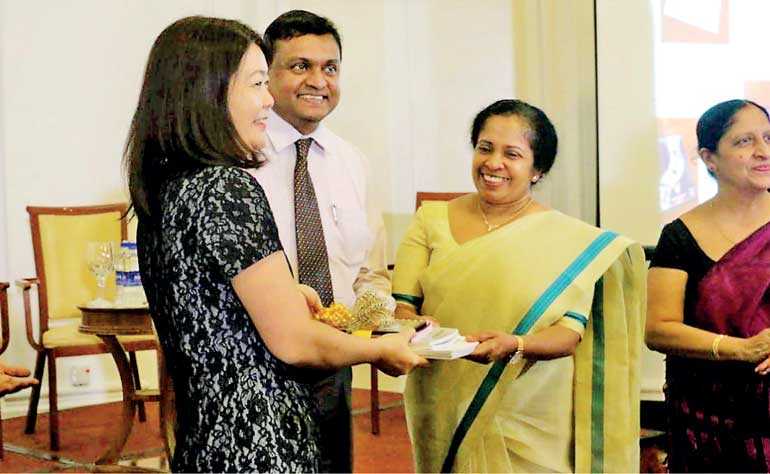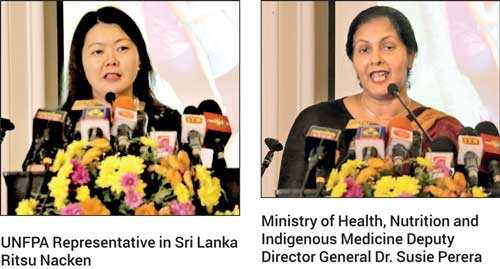Tuesday Feb 24, 2026
Tuesday Feb 24, 2026
Monday, 23 December 2019 00:29 - - {{hitsCtrl.values.hits}}

Official launch of the resource package on the Health Sector
Violence against women and girls is one of the most prevalent human rights violations in the world. The costs of violence are extremely high and include direct costs to the country as well as the untold cost inflicted on survivors and their communities for generations to come. Putting an end to this grave issue requires the efforts of ground-level health officials working with survivors who face brutal realities. 
Twenty-five years ago in Cairo, at the International Conference on Population and Development (ICPD), world leaders placed women’s rights at the centre of population and development policies. In the recently concluded ICPD 25 Nairobi Summit, Sri Lanka committed to further strengthen health care for the elimination of gender-based violence, and to expand care provision for survivors through ‘Mithuru Piyasa’ Centres and safe homes. Building capacities of primary healthcare providers to address cases of gender-based violence is vital as these officials serve as a strategic link between people and policy.
Taking this purview, the Ministry of Health launched a resource package on the ‘Health Sector Response to Prevention and Management of Gender-Based Violence’, which was supported by the United Nations Population Fund (UNFPA).
At the launch, Public Health Services Deputy Director General Dr. Susie Perera stated, “While the health sector looks at the issue of Gender-based violence from a service angle, the issue also needs to be addressed through a multi-sectoral approach. Co-ordination within the health sector and between sectors is paramount to ensuring change of attitudes and practices.”
The package that was launched includes a ‘Gender-based Violence Behavioural Change Communication Manual for Healthcare Providers’ and the Standard Operation Procedures (SOPs) and Guidelines. These important tools will assist and guide health sector officials to improve the overall health sector response to survivors of gender-based violence in a co-ordinated and standardised manner. These life-changing tools were developed in alignment with the Health Sector Module of the Essential Service Package, which is an international guideline based on best practices for response for survivors and victims of sexual and gender-based violence.
Highlighting the UNFPA’s commitment towards ensuring zero incidents of gender-based violence against women and girls, UNFPA Representative in Sri Lanka Ritsu Nacken said, “Many women suffer from gender-based violence in silence, due to social stigma and cultural norms. As a result, incidents don’t get reported and affected women and girls do not receive the necessary care and support. It is so important that health sector officials are equipped with the right skills to handle such sensitive situations.”
The event included a sensitisation activity and panel discussion with health sector experts who spoke on the relevance of the manual to capacitate ground-level staff, including midwives, on how communities and survivors can overcome such brutality.
In the 2030 agenda for sustainable development, gender is a key component across all goals, and requires urgent action to eliminate the many root causes of gender-based violence.